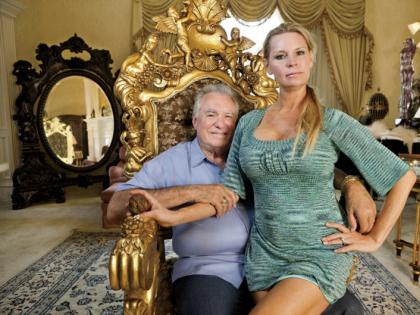With its muted hues and pine floorboards, the store resembles a medieval library with a blinking Apple iMac on the counter. Inventory at James and Devon Gray Booksellers ranges from early editions of Machiavelli’s The Prince and Robert Burton’s The Anatomy of Melancholy to a book of hours, a 200-page, personal devotional volume from 1380, for which the Grays are asking $185,000.
The couple founded their Harvard Square business when Devon Gray, A.L.B. ’92, G ’92, was still working on her bachelor’s degree in the Harvard Extension School. They trade exclusively in volumes printed before 1700, an unusual niche in which scarcity and the literary desires of wealthy collectors generally dictate prices. These old books are hardly delicate. With their thick leather covers and acid-free paper, they endure as long as they’re kept dry and out of direct sun.
The Grays once owned a book that had escaped the devastating 1764 fire that destroyed Harvard’s original library. It was the third volume of a history of England that one Thomas Bannister had bequeathed to the College more than five decades before the blaze. When Devon Gray bought the book, she noticed it was an “odd volume,” missing its mates, and bore a startling inscription on the front endpaper: “Bibliothecae Harv; Lib; 1709 22;1;8,” the Harvard shelf number. The book had either been stolen, checked out, or gone missing at the time of the fire.
“With a check at the Harvard Archives, I was able to view the original manuscript records,” Devon says. “My book had been checked out of the library at the time of the fire, and thereby survived. Now that volume is back at Houghton [Harvard’s rare-book library], where it belongs.”
Antiquarian bookselling is a handshake business among trusted merchants. The Grays acquire everything they deal in from Western Europe, and first offer every item to the national library of its country of origin. Books arrive at their Arrow Street emporium via bonded international courier. (Interpol has all but stamped out any black market in rare, old books; each volume comes with a mini-passport detailing its provenance.)
Sixteen years ago, Roger Stoddard, then curator of rare books at the Harvard College Library, challenged Devon, who was studying English with him, to go into the business. “He romanticized the good old days of bookselling,” James recalls, “and asked, ‘Why can’t we do that now?’”
When Devon—inspired by Stoddard and the curator of manuscripts, Rodney Dennis—began scouring auctions and book fairs on weekends to create a collection, bankrolled by about $8,000 in borrowed start-up capital, James was still working in industrial equipment sales. But soon she was reselling her acquisitions to Houghton and to other universities’ rare-book collections. Once the shop opened, James, who trained in anthropology and is something of an autodidact, worked mainly in the store while Devon focused on the catalogs and book repair.
Their worldwide clientele includes plenty of Harvard alumni and faculty. The Grays hire undergraduates for jobs in the store and use graduate students as overseas book scouts. Customers such as professor of the history of science Mario Biagioli and Baird professor of history Mark Kishlansky use the shop for research and updates about what is on market. Harvard librarians like Peter Accardo, the acquisitions bibliographer at Houghton, stop by for a sense of what they should be buying; he says the shop “is a very important asset to our acquisition team.”
Intricate thumbnail book descriptions—critical to the bookseller’s trade—distinguish the 30 or so artful catalogs the Grays have published (available at graybooksellers.com). Their largest thematic compendium to date, a forthcoming 150-page volume of poetic works, offers texts by Chaucer, Shakespeare, Donne, and Milton.
Today James still runs the store and Devon handles bookbinding and repairs. She tends to the artifacts with animal-hide glue and wheat paste, leather, unbleached linen thread, and a paring knife. “A book is an object,” she points out, “though the importance of the book is the text.”
~Shaun Sutner
Shaun Sutner is a reporter for the Worcester Telegram & Gazette.








